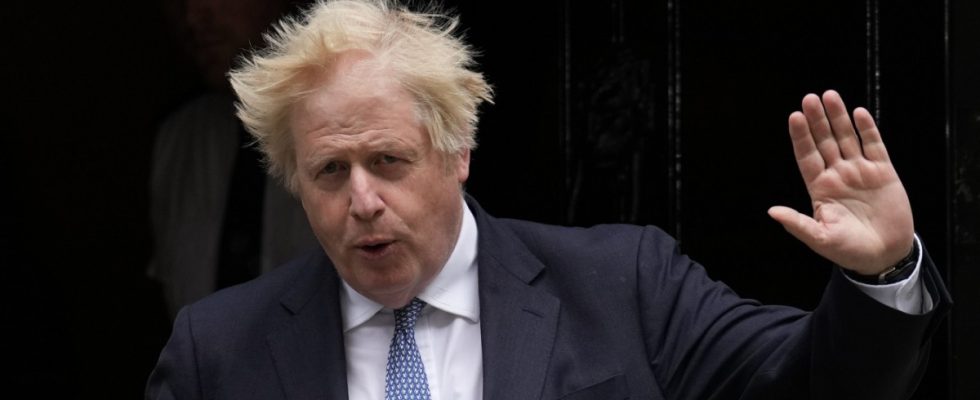Boris Johnson spoke up again over the weekend, on page 19 of Daily Mail. His astonishingly neatly dressed silhouette was shown at the top, next to it was written “Boris” in large letters in blue, with “Johnson” printed below it in such small print, as if that were of little interest. In the full-page text, the former prime minister pours out his thoughts on his obesity at the readers.
It’s about his nocturnal appetite for sausage and how he tried to curb his craving for ham sandwiches with medication. Although he did not feel well with this drug, it worked for colleagues in the cabinet, one of whom even lost so much weight that the chair at the cabinet table “no longer tried to grab his hip when he got up”. And that’s why he, Boris (Johnson), advocates that everyone should have the chance to use this drug in the future. Even if, to his amazement (“what the hell”), it’s quite expensive.
No joke. Boris Johnson, until not so long ago Prime Minister of the G-7 country Great Britain, is now the weekly columnist of the Daily Mail. The tabloid, which still has a large circulation and has long since said goodbye to any form of serious journalism, is said to be paying him well over half a million euros a year for it. Johnson told readers that he would only write about politics “if absolutely necessary”. Well: It never has to be, at least not according to some of his former colleagues in his former party.
Will Boris Johnson have to give up his ID card for Parliament grounds?
Boris Johnson was once the supposed savior of the Tories, in 2019 he won a historic 80-seat majority in the elections. He resigned from his post as an MP last week, and this Monday the House of Commons was debating whether Johnson would also have to surrender his pass to enter Parliament – something a former prime minister has never done before. The Privileges Committee report lasted five hours before it was approved by a vote of 354 to 7. The committee’s recommendations are therefore being implemented. As expected, many Tories, including Prime Minister Rishi Sunak, did not take part in the vote or abstained.
The committee found Johnson guilty after a year-long inquiry of willfully lying to Parliament during the ‘Partygate’ scandal over irregular meetings at Government headquarters in Downing Street, when he said all the rules had been followed. “Partygate” itself also continued on Monday: After a video of one of these festivals appeared for the first time at the weekend, where Tory employees made fun of “that we are currently expanding the rules,” the Metropolitan Police announced in the afternoon to resume the investigation.
Since the publication of the report, Johnson has been railing about “witch hunts” and the like, and some of his supporters have complained that the punishment was disproportionate. Had Johnson not already resigned, he would have been suspended for 90 days. He now has to hand in his passport, which former MPs usually keep on an honorary basis. disproportionate?
Being a role model was never Boris Johnson’s aspiration
The British House of Commons follows strict rules, some of which are centuries old. The most important is that MPs must tell the truth at all times in the House of Commons. If they make a mistake, they have the opportunity to correct the recording as soon as possible – because everything that is said in the House of Commons is recorded, and there are always several parliamentary staff in the press gallery who take turns in a rotating shift system. MPs are therefore addressed with the title “The Right Honorable”. Violations of that honor are subject to investigation and possible sanctions, all the more drastic when it concerns the prime minister – the one who should be an example to all. Being a role model, but that was never Johnson’s claim.
A few days ago published the Times on their letter to the editor page a letter from John Claughton. He was a Masters at Eton College from 1984 to 2001, a teacher who also has a tutor-like function in the British elite school. Claughton writes that the school’s “perhaps most important task” is “to ensure that its students are protected from a sense of privilege, entitlement and omniscience”. This uneasy, arrogant feeling produces “graduates like Boris Johnson,” and that could become a problem for the whole country. “Sadly,” Claughton concluded, he “failed at the task”.

